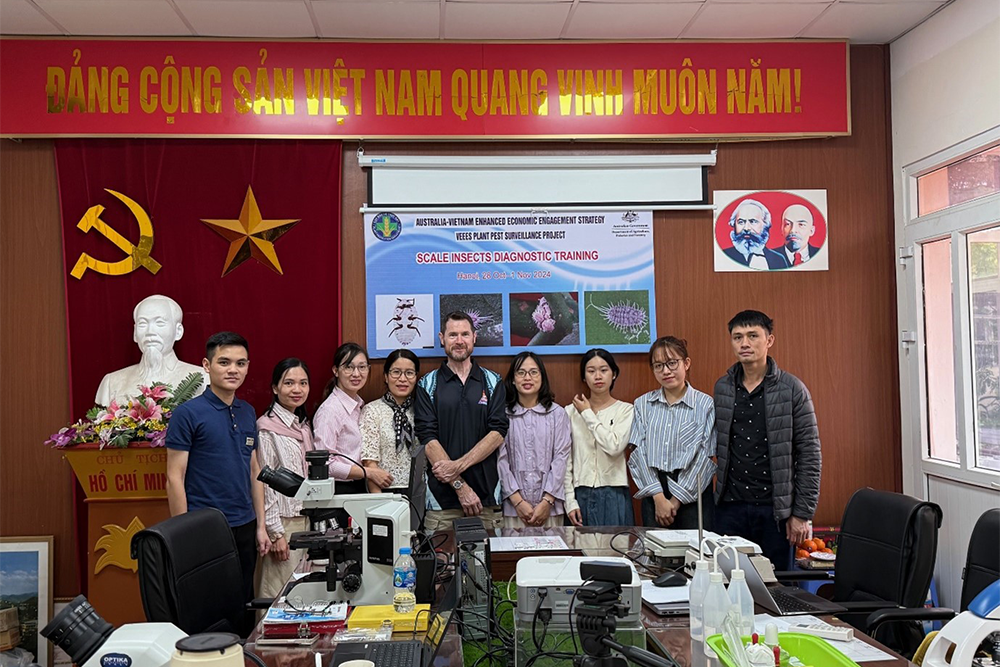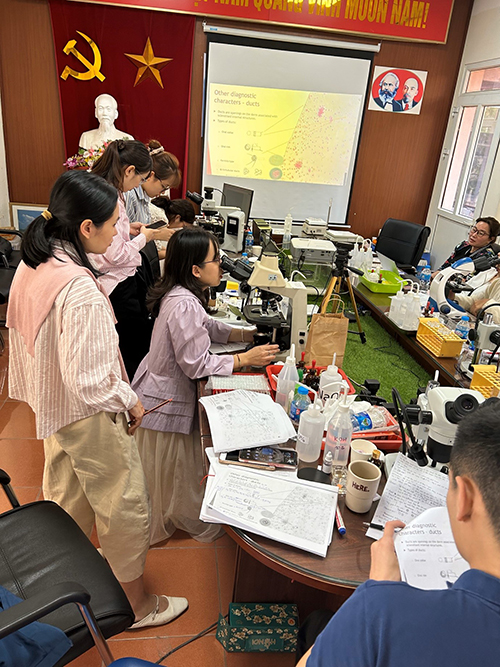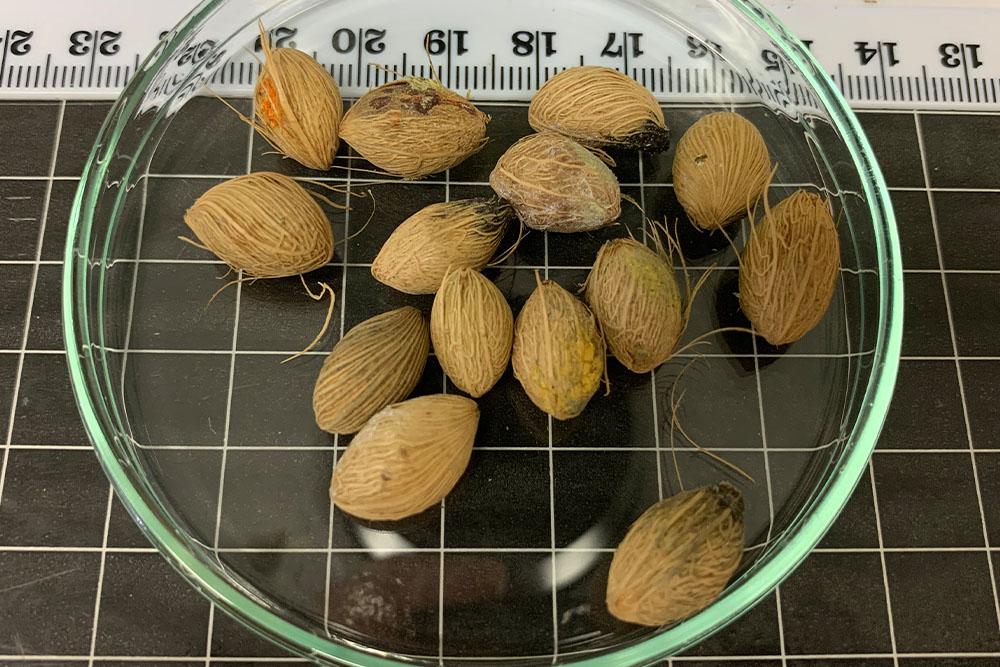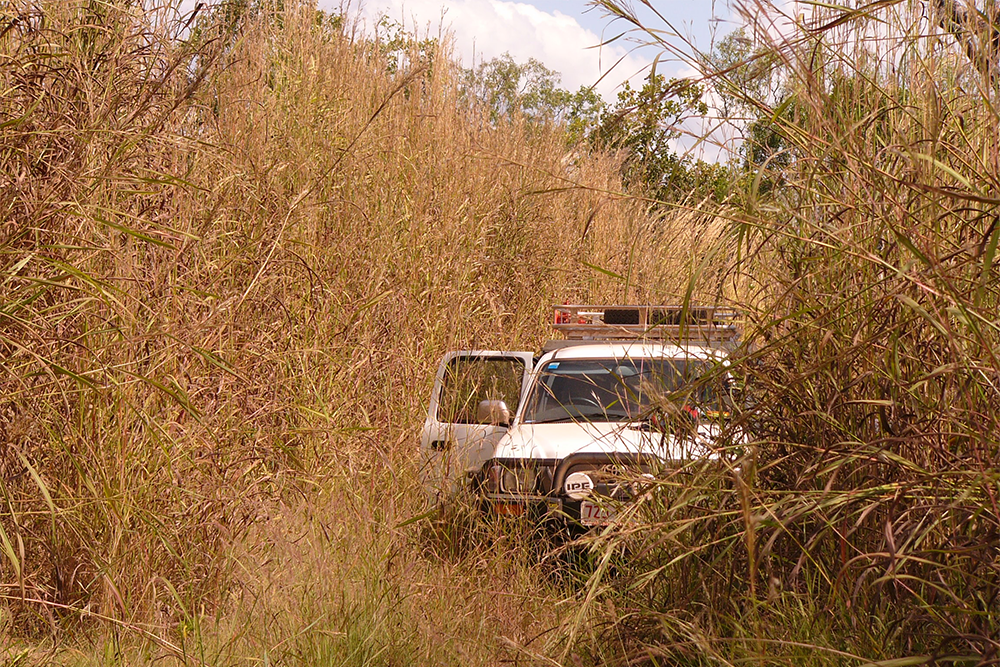International capacity development specialists representing multiple areas of the department had a busy October undertaking several biosecurity scoping missions and delivering technical training activities across the Asia-Pacific region. These capacity building and engagement activities are an important part of the department’s role in strengthening regional biosecurity and facilitating regional trade and market access opportunities.
As part of this work, department staff visited Vanuatu on a biosecurity scoping mission to help expand regional biosecurity support, and Vietnam to deliver technical workshops building plant health surveillance and diagnostic capacity to support trade.
In Vanuatu, the team met with local counterparts and discussed opportunities for plant protection, bilateral animal health, border biosecurity and plant exports technical support, through the Pacific Biosecurity Partnership Program, which is coordinated by the Australian Chief Plant Protection Officer (ACPPO).
The department’s delegation included subject matter experts from a range of disciplines covering plant health, surveillance, plant import operations, animal health and biosecurity border operations.
Some of the topics discussed included assisting with export supply chain issues and understanding the Australian import process better, support for veterinary and animal health programs and a newly appointed Chief Veterinary Officer for the country, improved plant health surveillance methods to meet international standards, a biosecurity operations review and biosecurity refresher training for frontline staff.
The visit was much appreciated by Vanuatu Ministry of Agriculture, Livestock, Forestry, Fisheries and Biosecurity (MALFFB) staff, and provided valuable insights for the department’s delegation, who will now work in collaboration with their Australian partners and Vanuatu counterparts to develop a proposed support program for the country. The aim of this support program would be to improve agricultural production, food security and export opportunities for Vanuatu, in addition to reducing the potential spread of animal and plant pests and diseases throughout the region - including to Australia.
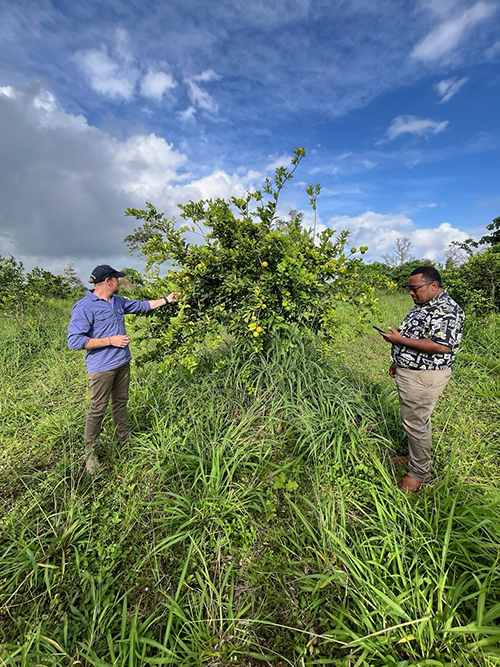
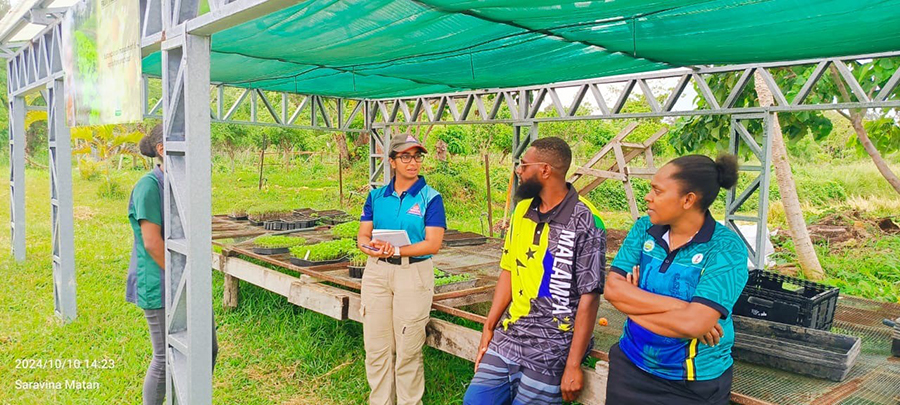
In Vietnam, ACPPO has also been leading several technical training initiatives with Vietnamese plant protection counterparts through the bilateral Australia-Vietnam Enhanced Economic Engagement Strategy (VEEES). Surveillance and diagnostics specialists from the department, along with colleagues from CSIRO, have delivered several specialised technical activities and field training exercises to strengthen Vietnam’s surveillance and diagnostics capacity for trade sensitive plant pests.
The final diagnostic technical activity of the series on trade sensitive scale insects was delivered by one of the department’s scale insect specialists to Vietnamese plant protection scientists in Hanoi. The activity provided hands-on experience in preparing material and identifying mealybugs, as well as hard and soft scale insects of trade significance to Vietnam.
